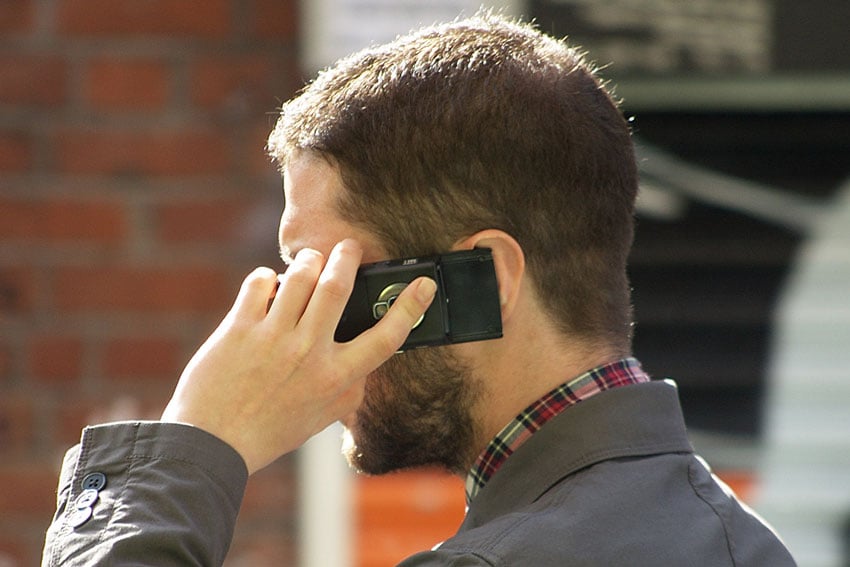
Not long ago I wrote an article here on ITS discussing the importance of maintaining situational awareness when you’re in public. It’s hard to make any decision, much less a critical decision, without accurate and timely information. This is why eliminating distractions, like putting the damn phone away, are key to ensuring that you have the time to properly respond to incoming threats.
Unintended Consequences
Many cities in the United States are starting to regulate mobile phone use and require “hands free” devices while driving a vehicle; you would think this would be a good thing. These regulations are intended for public safety, though we have no way of knowing if these new laws actually increase safety or just increase the feeling of safety.
For now, we’ll assume they do increase safety, but the unintended consequence is the rush to get to all of those notifications read as soon as you’re free to do so. For many folks, myself included, the act of checking mobile devices is pretty addictive. So much of the world has been brought to our fingertips, literally.
Paying Attention and Timing
As a public safety announcement, reserve using your mobile device while operating a vehicle to emergencies only. It’s normal for many folks to want to engage with social media the moment they park the vehicle, or worse when they’re temporarily stopped.
Here are some further tips that you can employ to avoid being ambushed. The criminal element will target those who seem to be “aloof and unaware,” over those who are paying attention to their surroundings.
Perpetual Low Alertness
It would be nice if everyone could be switched on and in a constant state of high alert all the time, but that’s just not realistic. If you think it is, you’ve never been in that situation long enough to recognize the deterioration it has on your body and faculties.
There’s a time and place for everything and as part of your personal security plan, given the persuasiveness of these mobile devices, you need to incorporate some simple steps. The first step is probably the most important; before you look down, look up.
Make this a habit like brushing your teeth. An old Frogman taught this to me years ago. Anytime you’re distracted by something, you need to quickly refocus and find the threat. If you can make that one change, you’ll see a consistent peak in your situational awareness.
The Barrier
Now that you’re consistently incorporating this new approach, let’s tackle the “when.” It should go without saying that no matter how safe your environment, lock your car doors the moment you and all your occupants enter and only unlock them after you’ve scanned the immediate vicinity.
Having your doors locked and windows up creates a “barrier.” I put barrier in quotations because if someone really wants to get at you, it won’t be much of a barrier. Review your options for weaponry, as you may not have access to your primary right away.
Always consider what’s available and don’t forget weapons of opportunity. Once you’ve set a safe condition, take care of the immediate responses, or those that take less than a few minutes. If the response takes anything more than that, wait until you’re in a more secure location. From time to time, come up for air and scan the area.
Back Against the Wall
If you’re on foot, it can be a little more difficult to employ the advice above, considering you don’t have a barrier. Again, there’s a time and place for everything; checking your mobile device has its place. Remember, before you look down, look up.
Now step out of the traffic flow and put your back to something. If you absolutely must read or respond to a message, this will limit the available options bad guys have and hopefully give you a little notice as they approach you from the front.
A good rule of thumb is that if you have to exchange more than a few texts, call the person on the other end. It’s amazing how much time is wasted texting or replying to emails when compared to just talking. If you’re going to talk, investing in a hands-free type device is a sound idea.
I’m sure most of us can multitask, but we’re also easily distracted. If you take nothing else away from this article, just remember how a phone can impact your personal safety and situational awareness.
Editor-in-Chief’s Note: Jeff Gonzales was a decorated and respected US Navy SEAL, serving as an operator and trainer who participated in numerous combat operations throughout the world. He now uses his modern warfare expertise as President of Trident Concepts, LLC., a battle proven company specializing in weapons, tactics and techniques to meet the evolving threat. Bringing the same high-intensity mindset, operational success and lessons learned from NSW to their training programs, TRICON has been recognized as an industry leader by various federal, state and local units. Organizations interested in training with TRICON can call 928-925-7038 or visit tridentconcepts.com for more information.